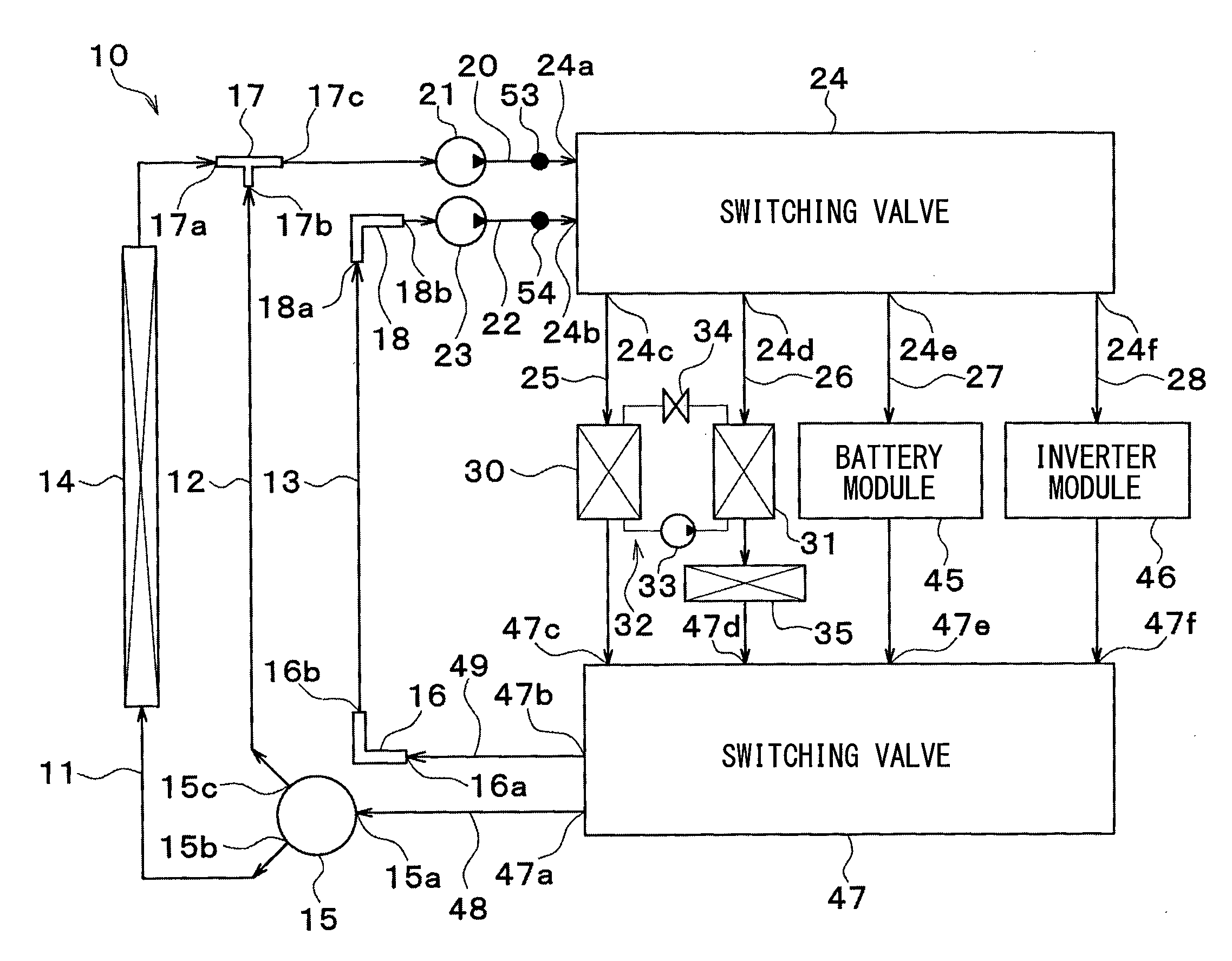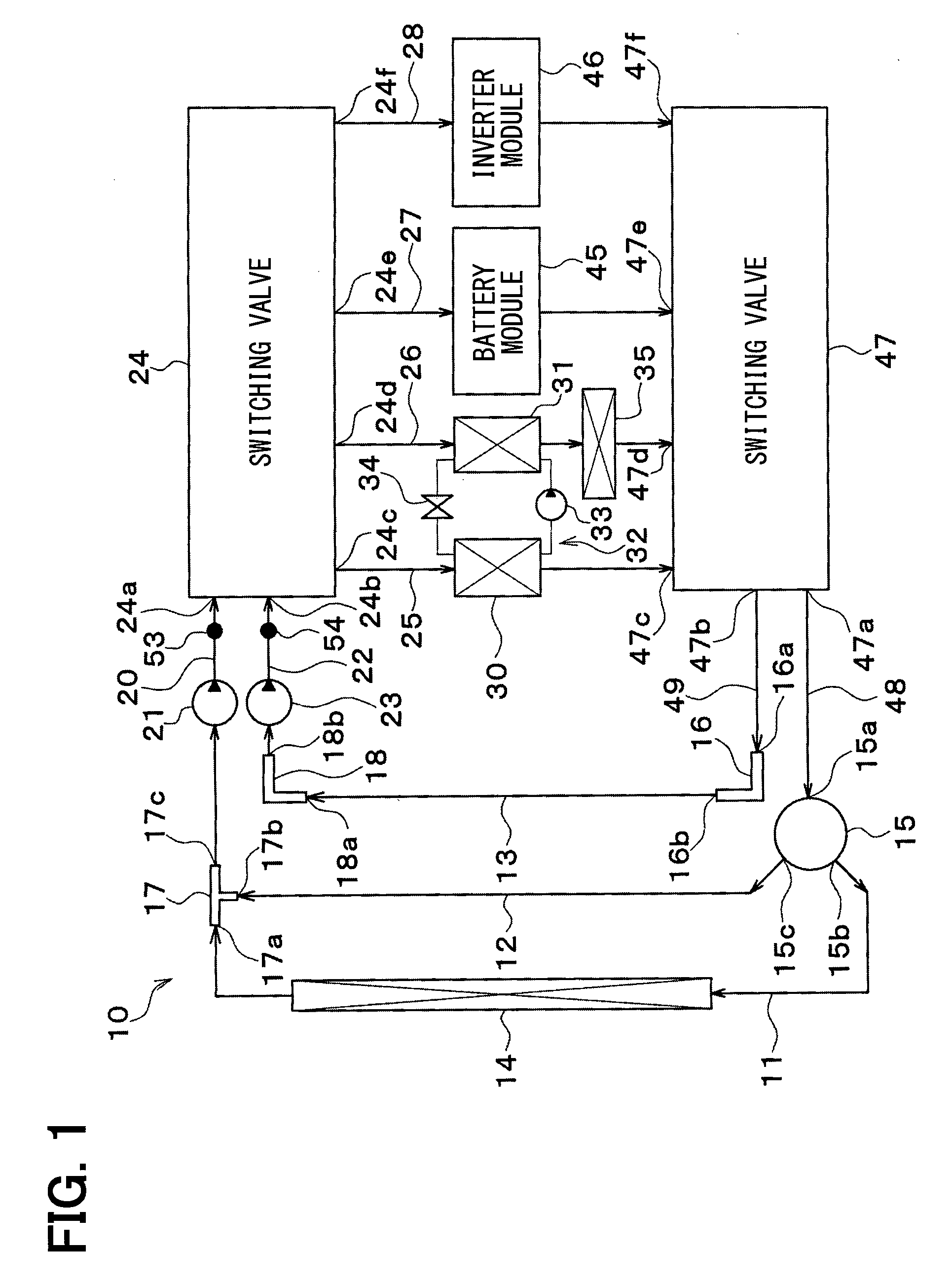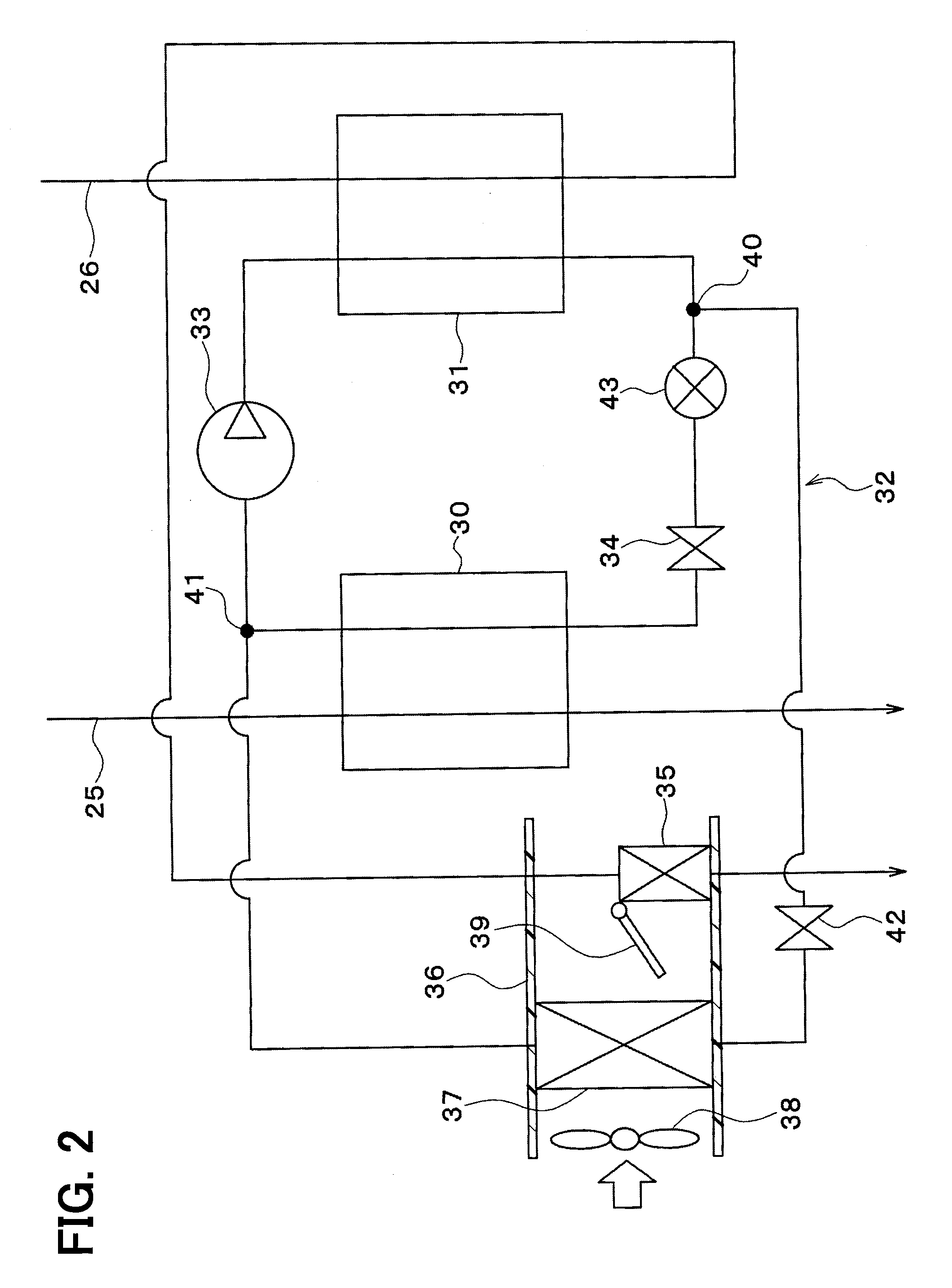Vehicular thermal management system including selective heat transfer medium circulation
a technology of thermal management system and heat transfer medium, which is applied in the direction of battery/fuel cell control arrangement, machine/engine, battery/cell propulsion, etc., can solve the problem that the reduction gear mechanism, the battery compartment, and the vehicle compartment might have a and it is difficult to exchange heat between a plurality of devices. , to achieve the effect of low degree of flexibility in temperature adjustmen
- Summary
- Abstract
- Description
- Claims
- Application Information
AI Technical Summary
Benefits of technology
Problems solved by technology
Method used
Image
Examples
first embodiment
(First Embodiment)
[0066]Now, a first embodiment of the invention will be described based on FIGS. 1 to 19. A vehicle thermal management system 10 shown in FIG. 1 is used to perform air conditioning (cooling or heating) of various devices mounted on a vehicle (devices requiring cooling or heating) or an interior of the vehicle to an appropriate temperature.
[0067]In this embodiment, the thermal management system 10 is applied to a hybrid vehicle that can obtain the driving force for traveling from both an internal combustion engine (engine) and an electric motor for traveling.
[0068]A hybrid vehicle of this embodiment is configured as a plug-in hybrid car that can charge a battery (vehicle-mounted battery) mounted on the vehicle with power supplied from an external power source (commercial power source) during stopping of the vehicle. For example, a lithium ion battery can be used as the battery.
[0069]A driving force output from an engine is used not only for traveling of the vehicle, ...
second embodiment
(Second Embodiment)
[0218]Although in the first embodiment, the battery module 45 directly exchanges heat between the battery 451 and the coolant, as shown in FIG. 20, in a second embodiment, a battery module 60 exchanges heat between the coolant and a battery 601 via the air.
[0219]The battery module 60 includes a casing 602 for accommodating therein the battery 601. The casing 602 forms an air passage through which the air blown by a blower 603 flows. The casing 602 is provided with an inside air introduction port 602a for introducing air in the vehicle interior (hereinafter referred to as an inside air).
[0220]The battery 601 is disposed on one end side of the inside of the casing 602. The inside air introduction port 602a is disposed on the other end side of the inside of the casing 602. One end part of the casing 602 with the battery 601 disposed therein is formed of thermal insulating material. Thus, the battery module 60 has a heat retaining structure for storing hot heat and co...
third embodiment
(Third Embodiment)
[0258]In a third embodiment of the invention, as shown in FIG. 26, a coolant-refrigerant heat exchanger 61 is added to the structure of the above second embodiment.
[0259]The coolant-refrigerant heat exchanger 61 is a heat exchanger (heat medium-refrigerant heat exchanger) that exchanges heat between the coolant (heat medium) flowing from the battery heat exchanger 604 and the refrigerant flowing from the coolant-heating heat exchanger 31.
[0260]Specifically, the coolant-refrigerant heat exchanger 61 is disposed on the downstream side of the battery heat exchanger 604 in the third parallel flow path 27, and on the downstream side of the coolant-heating heat exchanger 31 in the refrigeration cycle 32. That is, the coolant-refrigerant heat exchanger 61 and the battery heat exchanger 604 are arranged in series in the third parallel flow path 27.
[0261]An electric expansion valve 62 is disposed between the coolant-heating heat exchanger 31 and the coolant-refrigerant heat...
PUM
| Property | Measurement | Unit |
|---|---|---|
| aspect ratio | aaaaa | aaaaa |
| temperature | aaaaa | aaaaa |
| temperature | aaaaa | aaaaa |
Abstract
Description
Claims
Application Information
 Login to View More
Login to View More - R&D
- Intellectual Property
- Life Sciences
- Materials
- Tech Scout
- Unparalleled Data Quality
- Higher Quality Content
- 60% Fewer Hallucinations
Browse by: Latest US Patents, China's latest patents, Technical Efficacy Thesaurus, Application Domain, Technology Topic, Popular Technical Reports.
© 2025 PatSnap. All rights reserved.Legal|Privacy policy|Modern Slavery Act Transparency Statement|Sitemap|About US| Contact US: help@patsnap.com



